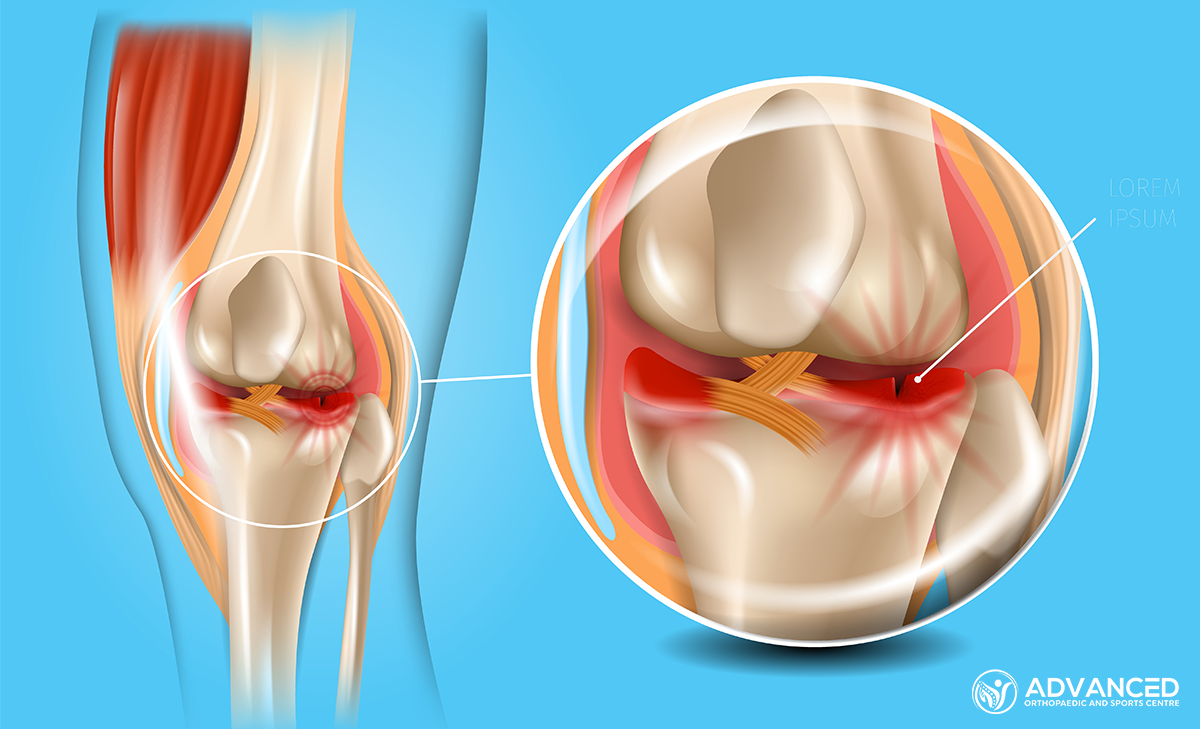“Should I see a doctor?” is a common question most people ask whenever they feel pain or notice symptoms. Some may want to wait a few days to see if the pain or symptoms improve, while others would want to make an appointment to see a doctor as soon as possible.
While there is no one size fits all solution, it is always recommended to seek treatment early to prevent your condition from deteriorating or worse still, leave it untreated which will only cause further problems in the future.
Although this applies to all types of conditions, we will be zooming in on knee meniscus tears in this article.
What is a meniscus tear?
Meniscus tears are some of the most common knee injuries seen in athletes who play contact sports, though the average person can also suffer a meniscus tear injury.
The knee joint is made up of two bones – the femur and tibia – and two pieces of fibrocartilage, also known as menisci, act as shock absorbers between them. The menisci help to keep the knee joint stable and provide cushioning.
A meniscus tear can occur suddenly due to acute trauma or over time as a result of degenerative changes. Symptoms include hearing a pop sound at the time of the injury, experiencing pain, stiffness and swelling, and the inability to move the knee through its full range of motion. Although you may still be able to walk on your injured knee, it is advisable to seek treatment early to prevent the knee from becoming stiffer or swollen.
If you are still hesitating about seeing a knee specialist in Singapore for your meniscus tear, here are three reasons why you should never leave it untreated.

1. Some tears cannot heal on their own
A tear on the outer one-third of the meniscus may heal on its own because the area has a rich supply of blood and blood cells to regenerate the meniscus tissue. However, a deeper tear in the inner two-thirds of the meniscus will not be able to heal on its own due to the lack of blood flow in the area – oftentimes, surgery is needed to repair or trim it.
2. An untreated meniscus tear can lead to complications
Leaving a meniscus tear untreated can also lead to frayed edges getting caught in the knee joint during movement, causing pain, swelling and locking. This can then result in long-term knee problems, such as cartilage damage and arthritis.
3. May cause further damage that requires more significant surgery
By not treating your meniscus tear, you are essentially taking the risk of letting your condition deteriorate. This will result in the inability to participate in sports and other physical activities. In addition, accumulation of meniscus or cartilage injury, could eventually lead to knee arthritis down the road, which may require more complex surgery, such as a knee replacement, to treat.
Treatments for a meniscus tear
Hearing the word “surgery” is undoubtedly worrying but not all meniscus tears require surgery to treat. Your knee specialist will take your age, symptoms and activity level into consideration when deciding on the most suitable treatment option.
Some meniscus tears will not require immediate surgery and can heal through conservative treatment methods. Anti-inflammatory medications or sometimes steroid injections may help to reduce the pain and swelling while the meniscus heals. However, in severe cases, surgery may be needed to repair or trim the tear. This is done through arthroscopy, which is a minimally invasive, keyhole surgery, that is often done as day surgery.
It is important to seek professional medical advice as soon as you sustain a meniscus tear injury so you can get the right treatment to regain your quality of life.
Get in touch with us here at Advanced Orthopaedics and let our knee specialist, Dr Poh, help you get back to doing what you love.

